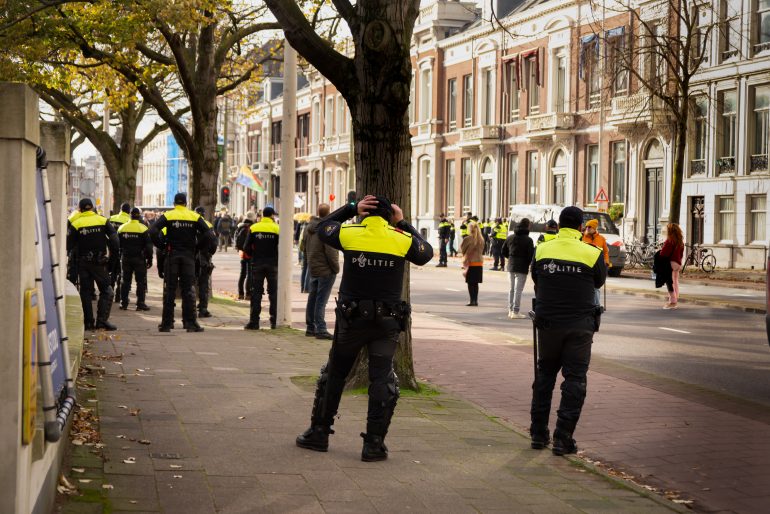Hundreds took to the streets in various cities in the Netherlands as anger mounted over new Covid restrictions imposed by the government to tackle the recent surge in cases. From Rotterdam, Enschede to Leeuwarden and Langdonk, Covid protests turned violent in various cities in the Netherlands during the past few weeks.
The riots erupted after the government announced semi-lockdown measures, including the closure of all businesses between 5 pm and 5 am. The decision came after a new Covid variant named Omicron emerged, trying to take the world in its grip. And soon after the new Covid rules came into effect, the bucolic country of bridges and bikes was swept by some of the worst riots ever in the last 40 years. Rioters burned bikes and cars, destroyed street furniture and looted properties, while others blew up a pedestrian bridge in Amsterdam. People even clashed with police, especially in Rotterdam, leading to nearly 500 arrests.
The rioters include anti-government groups, Covid skeptics, bored people who have been cooped up inside and criminals trying to take undue advantage of the chaos and create unrest in the country. This toxic cocktail created a spark and supporters were galvanized through various means such as Telegram, WhatsApp and other social media platforms.
Not just the big cities such as Amsterdam, The Hague and Rotterdam, but several smaller Dutch towns witnessed violence: rioters looted a supermarket, set off heavy fireworks, hurled stones at police and caused destruction in various parts of the country. Urk, a small fishing village in the northern Netherlands, has a substantial anti-government population. This was already shown several times during the Covid pandemic, for example when local youths burned down a Covid testing center. Emergency ordinances were also imposed in various municipalities in Limburg, after rioters took to social media for inciting violence and gathering more protesters. The protest took an ugly turn in Roosendaal, when a fire was set to a primary school.
The police were already prepared for demonstrations, disturbances and protests in response to the new lockdowns. Police arrested dozens of protesters for disturbing public order. Emergency orders were issued in various parts of the countries, when demonstrations turned life-threatening. According to the reports, many police officials got injured in fighting the situation.
There had been protests over many issues in the past too, but the scale and violence of these recent demonstrations have shocked the entire nation. Outgoing Prime Minister Mark Rutte condemned the riots and described them as pure violence under the guise of demonstration. Many other government officials also expressed their shock about the protests. The outgoing Justice Minister Ferd Grapperhaus stated that “the riots are the results of highly organized violence and have nothing to do with social or political discontent”.
Last week, the situation appeared a bit calmer as several protesters marched peacefully at Amsterdam’s Dam square, opposing Covid restrictions. Many protesters criticized the government’s plans to exclude the unvaccinated from entering restaurants and bars.
Coronavirus cases shot up to 22.000 average per day in the last week, the highest figure in the Netherlands since the pandemic broke out. The government is making every endeavour to contain the virus, but people need to follow the imposed restrictions. The government is walking a fine line between necessary measures and a population that is frustrated, fed up and reluctant to follow the continuously changing Covid restrictions. Frustration is understandable, but riots can never be a solution or answer. One helpful tactic could be marketing “moral responsibility” – creating a fine balance between people’s freedom and government’s policies. It is crucial to reiterate that we are “all in this together”.
Written by Parul Sachdeva
